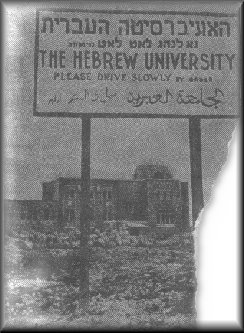|

Dov Levin ist eine von 40 Personen, die von der US
Zeitschrift Newsweek zur Darstellung der "Kriege des 20.Jahrhunderts"
ausgewählt wurden.
Wir freuen uns mit Dov Levin:
A Mensch!
Dov Levin, Professor an der Hebrew University, ist einer
der weltweit anerkanntesten Experten für ORAL HISTORY.
Sein Spezialgebiet ist das Baltikum. Als Überlebender aus Kowno ist Dov
Levins Wanderungsroute im Jahre 1945 in Martin Gilberts Encyclopedia of
Holocaust enthalten.
Er hat den Umgang einer ganzen nachfolgenden Generation mit
unserer kollektiven Erinnerung geprägt. Besonders hervorzuheben ist in
diesem Zusammenhang sein Werk: "PINKAS KEHILOT LITA", in welchem alle
jüdischen Gemeinden Litauens verzeichnet sind. Ein ebensolches Buch
existiert für Lettland und Estland. Unvergessen sind auch die beiden
Bücher "FIGHTING BACK" sowie "The lesser of two evils: BALTIC JEWS UNDER
THE SOVJETS".
Mehr als 40 Bücher und 400 Artikel hat der an der Hebräischen
Universität in Jerusalem lehrende Professor Levin verfasst.
Neben Simon Wiesenthal ist Dov Levin ist mein Mentor. Ich
bewundere sein Werk und Dov gehört für mich zu den großen
Persönlichkeiten dieses Jahrhunderts. Was neben allen offiziellen Würden
aber am Wichtigsten ist: Dov Levin ist wirklich ein Mensch.


SLW für haGalil, am 18.3.99
from: NEWSWEEK, 15 March 1999
A Place to Take a Stand
JERUSALEM, MAY 14, 1948: Dov
Levin lost his family in the Nazi occupation of Lithuania. He was
guarding the Mount Scopus campus of Jerusalem's Hebrew University when
Israel was born ; and the Arabs invaded.
I myself didn't hear the
declaration of independence on the radio because I was on
duty. I saw many people kissing and jumping, and some of the youngsters
started to dance.
But my excitement wasn't very long-lived.
For us, victory seemed very, very distant because Jerusalem was
surrounded. From [Jerusalem's] Old City I heard a Jewish girl's voice on
the radio saying, "We are going to surrender! Please tell us how to
surrender!" It made me ill to hear such words. How can it be that our
forces are surrendering? When a girl is saying those words it's even
more impressive. Then I heard the voice of a male: "You will have to
wait, we will give you instructions." For me, it was very disgusting.
I forgot that in a war, you cannot win
all the battles. But here we were in Palestine; where every man should
be a hero. When the ship first brought me here, I wondered: "Am I really
alive? And out of the 250,000 Jews in Lithuania, I am one of the few who
survived? Why me?" Some of the sabras [native-born Israelis] who met me
said, "You're a good man. You were a partisan [in the Lithuanian
resistance]. But how could all the others go [to the concentration
camps]? If something happens here, we will not give up."
And here I was seeing the same behavior.
People here persuaded me to believe that here they are another
people--yet here they were also surrendering. So it was a day of mixed
feelings for me.
| Then we heard that all
the Arab armies are marching
toward Palestine. So I made up my mind that it would be very hard
times, that it would not be so easy. I had seen what [weapons] we
had. In such a small strategic place - Mount Scopus, which was one
of the highest places in the entire Jerusalem area - we had only
about 40 rifles and homemade tommy guns. The heaviest thing we had
was one small two-inch mortar. We had many people who wanted to do
something, but they had no weapons. We were surrounded.
Some of the men had families in
Jerusalem, and they were already homesick. One night we were bombed
on Mount Scopus. Our commander was a former major in the British
Army, and we students asked him to train us more. We were funny
soldiers -- soldiers usually don't want a lot of training.
The Jordanian forces came very close
to our position and one of our guys, also a former partisan, stopped
them with his lousy antitank gun with two or three bullets. At one
point it was very, very dangerous to be on Mount Scopus. Elsewhere
in the country it wasn't going badly. But I had to be concerned
about what was going on where we were. |
 |
Bücher:
Fighting Back:
Lithuanian Jewry's Armed Resistance to the Nazis, 1941-1945
Dov Levin / Hardcover / 1985 - $49.50
Fighting Back:
Lithuanian Jewry's Armed Resistance to the Nazis, 1941-1945
Dov Levin / Paperback / 1985 - $17.50
Reviews: Holocaust and Genocide Studies
"Meticulously researched and exhaustively detailed, this
study traces the painstaking efforts of Jews, despoiled of haven and
hope, to combat the onslaught of the Nazi death machine."
This landmark book, updated with a new preface to include
findings from the archives of independent Lithuania, presents the first
comprehensive account of organized resistance against the Nazis by
Lithuanian Jews. Dov Levin, an eminent Israeli scholar who was once a
member of the Kovno ghetto underground and later a fighter with the
Lithuanian partisans, describes the declining social and economic
position of Lithuanian Jews in the years leading up to World War II and
their plight first under Soviet, and later under German occupation. He
chronicles the activities of Jews who left their homeland to join the
Soviet Army, those who remained behind to fight in the forests and in
the ghettos of Vilna, Kovno, Shavli, and Svencian, and those who fought
in the concentration camps. FIGHTING BACK is the product of decades of
research, involving the study of memoirs, trial transcripts, military
documents, ghetto and battlefield diaries, interviews, and contemporary
Jewish accounts published outside Lithuania.
haGalil onLine -
Donnerstag 18-03-99 |